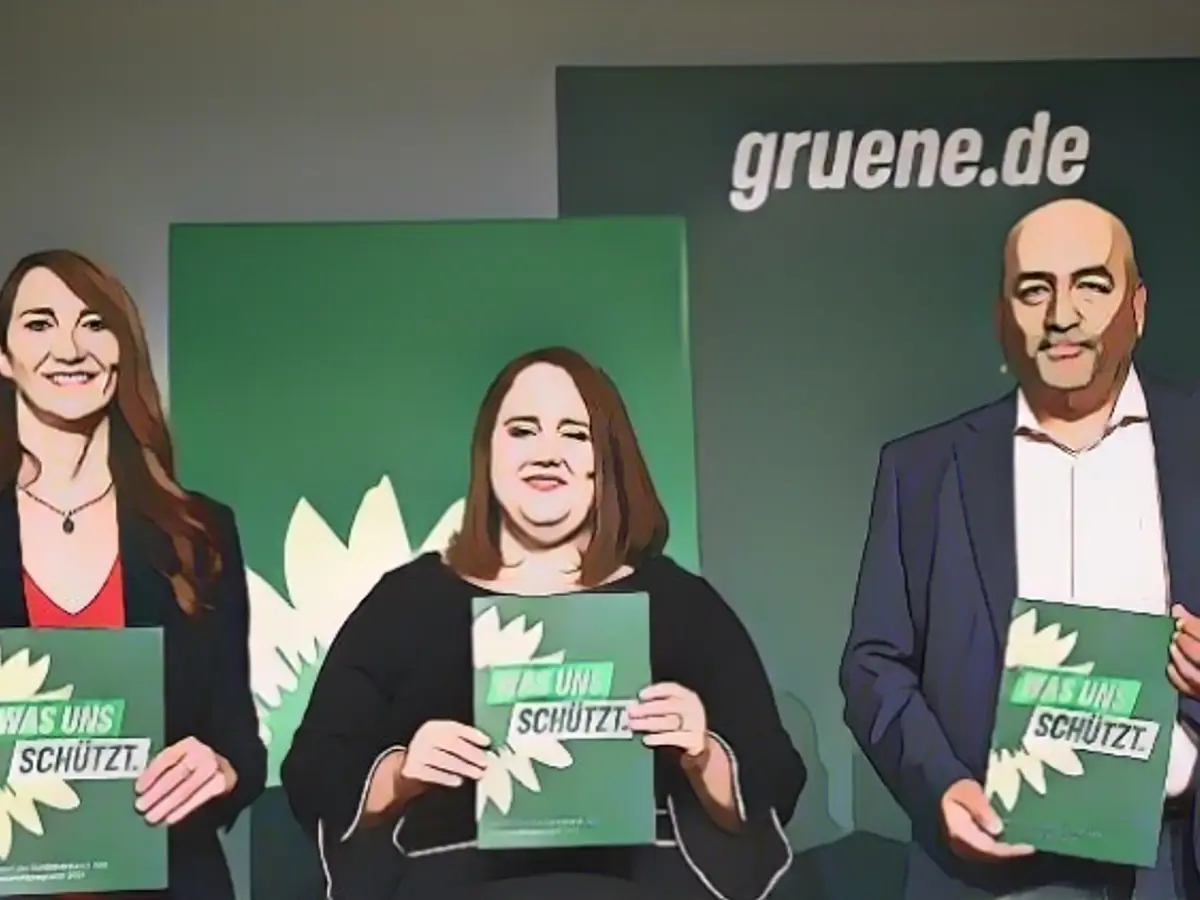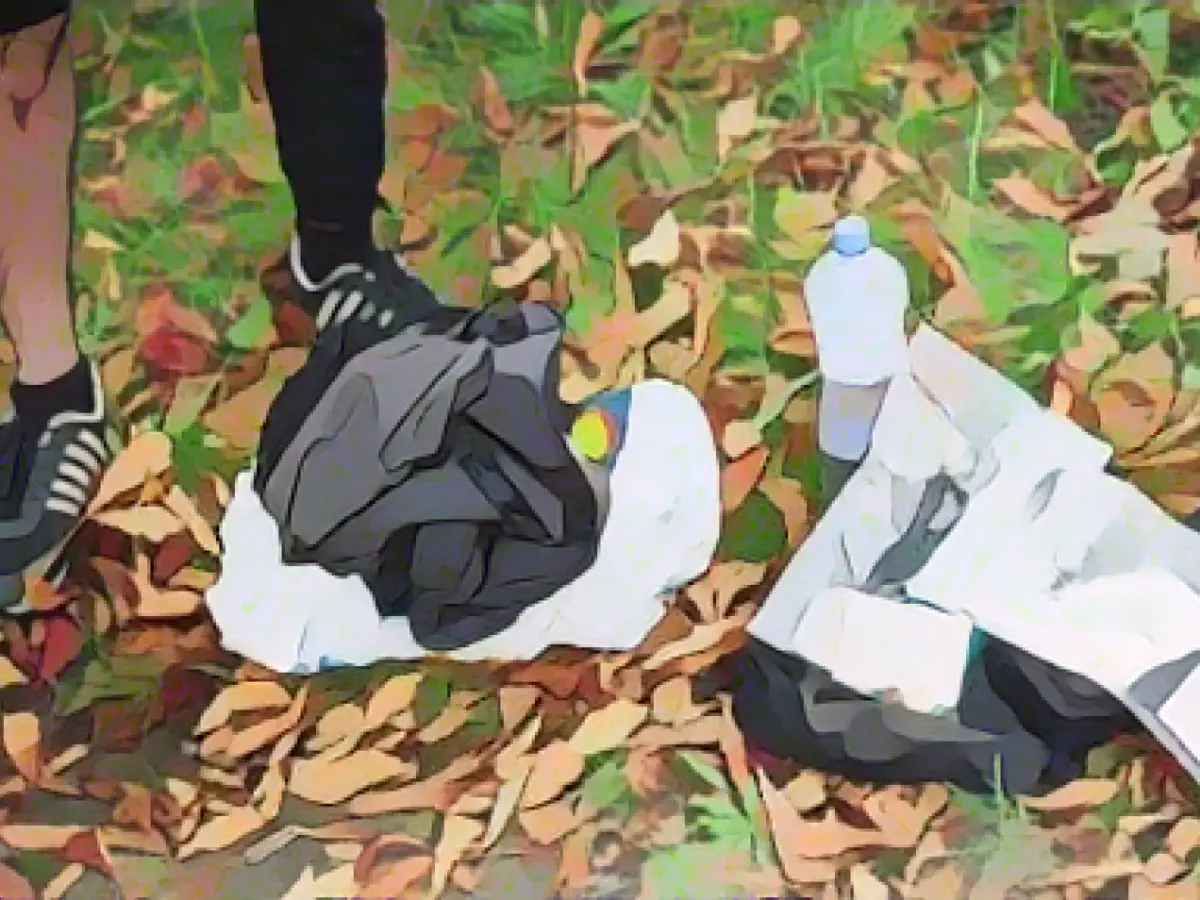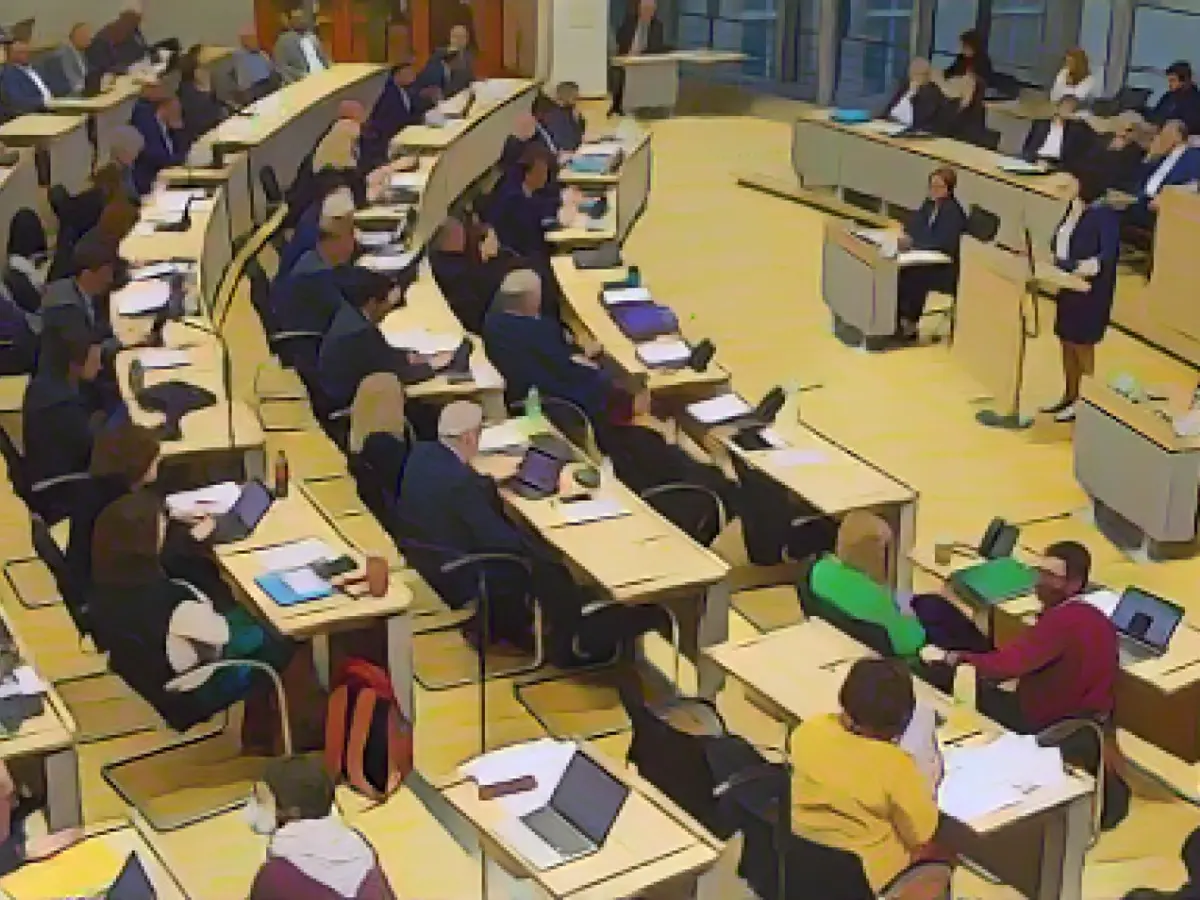Green Party Gathers for Crucial Conference Amidst Budget and Policy Challenges
The Alliance 90/The Greens are set to convene their four-day party conference in Karlsruhe, a city steeped in their 43-year history. With immense internal strife and financial constraints threatening their unity, this event is crucial in determining their strategic trajectory and collaborative capacity within the German political landscape.
Two years ago, green triumphs and jubilance dominated the scene at the federal-state council in Berlin. Now, the party finds itself confronted with an extensive list of compromises, defeats, and contested policies. From the exit of Family Affairs Minister Anne Spiegel to the support of Ukrainian arms deliveries and tightened EU asylum policies to disputes with forest squatters, the Greens have certainly stayed busy since joining the traffic light coalition.
Financial Challenges Propel Program Changes
The looming German debt brake decision could further impact the party's climate projects, forcing the government to push back on its carbon reduction goals. Amidst the government's budget concerns, the debate on the country's current climate situation was expedited, moving from Saturday night to Thursday evening. Green Economics Minister Robert Habeck plans to reassure uncertain delegates that the loss of €60 billion from the Climate and Transformation Fund will not derail their ambitions for a carbon-neutral Germany.
Asylum Policy Debate Delayed, Again
The proposed European asylum policy debate, initially slated for late Thursday, has been postponed till late Saturday. The Green Youth proposition aims to ensure that their party rejects any further tightening of asylum regulations, while an incendiary letter circulating within the party seeks to deny federal ministers the right to pursue environmental policies. Over 1,000 signatures may not be a small number, but they must be contextualized in relation to the Green Party's membership of over 125,000.
Leadership Re-election Amidst Criticism
The Green leadership, including Baerbock, Habeck, Lang, and Nouripour, has opted against re-election to the party council. The separation of office and mandate is a top priority for many Greens; nonetheless, the decision signifies a significant devaluation of their influence within the party.
Green Leaders Face Public Scrutiny
Ricarda Lang is among those expressing concerns about the internal centrifugal forces within the Green Party, which could potentially disrupt important debates concerning climate and asylum policies. The party's electoral slump to 13% in polling and dismal performance in regional elections has also raised questions about the effectiveness of their leadership and coalition dynamics.
The Future of Green Ambitions
As the debate around climate policy, asylum, and the leadership of the alliance unfolds, the key issues and challenges the Greens face must be addressed. The implementation of budgetary proposals, the transition to renewable energy sources, and the maintenance of a balanced migration policy will all play significant roles in determining their success in the future.
ZEW Analysis of Green Budget Proposals
Green budget proposals would significantly increase government spending by 4 billion euros, according to ZEW analysis. Left Party plans would add an additional 46 billion euros.[2]
Green Climate Targets & Policy Priorities
The Green platform includes promoting cost-efficient and sustainable renewable energy, funding national battery research programs, and incentivizing energy-efficient renovations.[1]
Regional and National Elections
The Green Party must navigate regional parliamentary elections in Hamburg and national parliamentary elections in Germany, which could offer an opportunity to regain lost support.[4]
Coalition Dynamics
The Green Party's previous involvement in the 'traffic light' coalition has been marked by infighting and unpopularity, necessitating the alliance to find a cohesive and appealing platform for voters.[4]
Sources:








